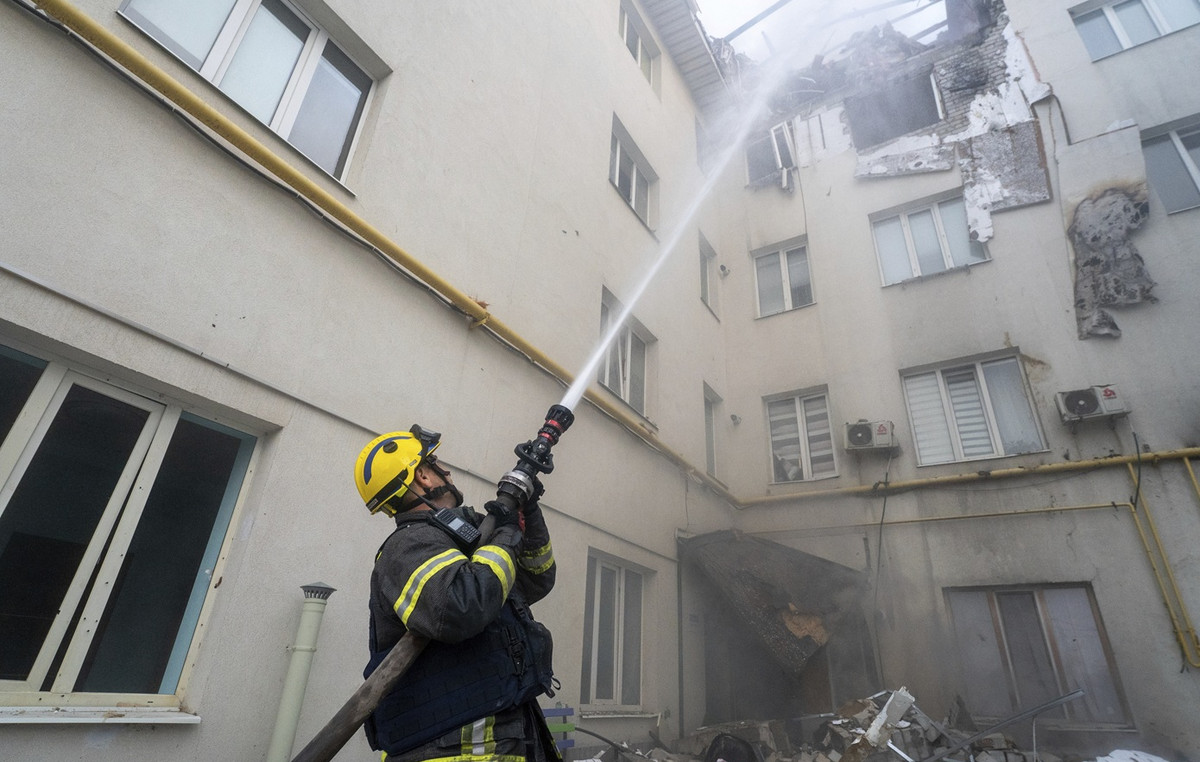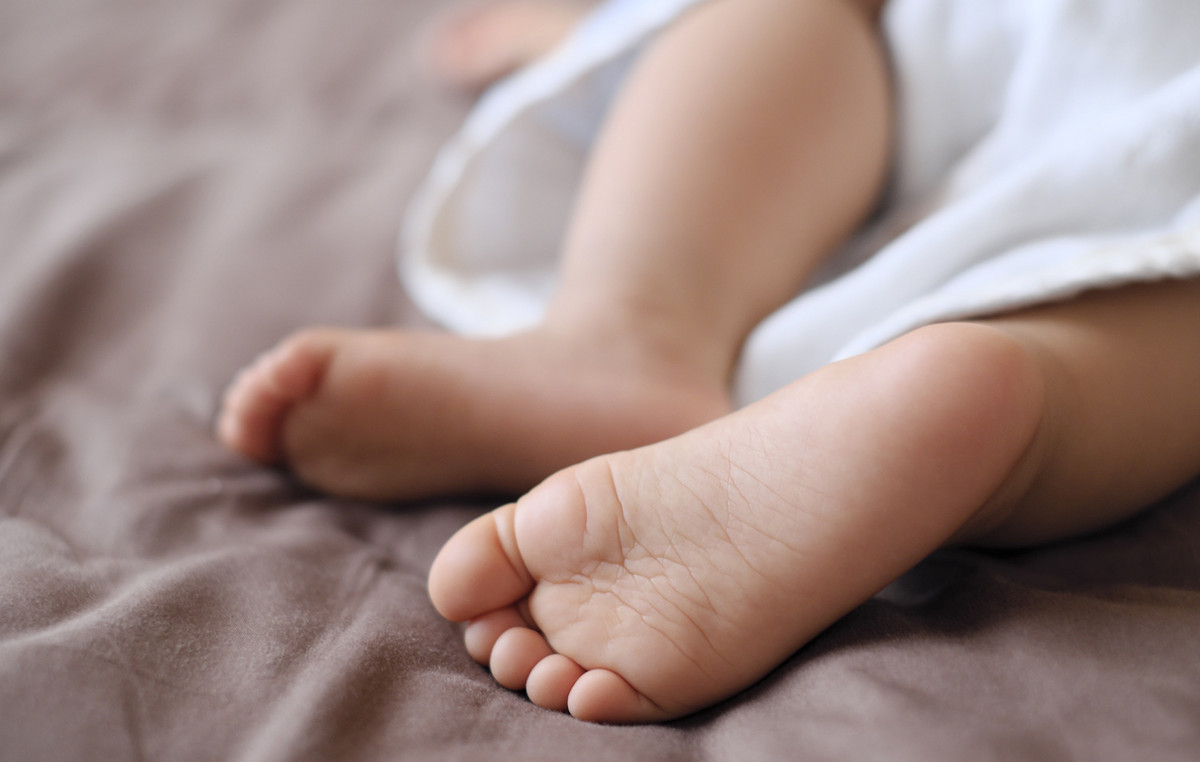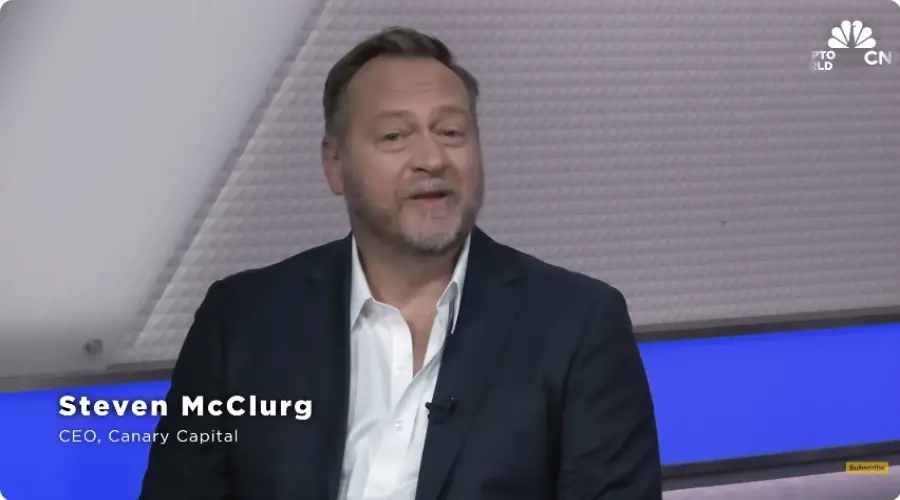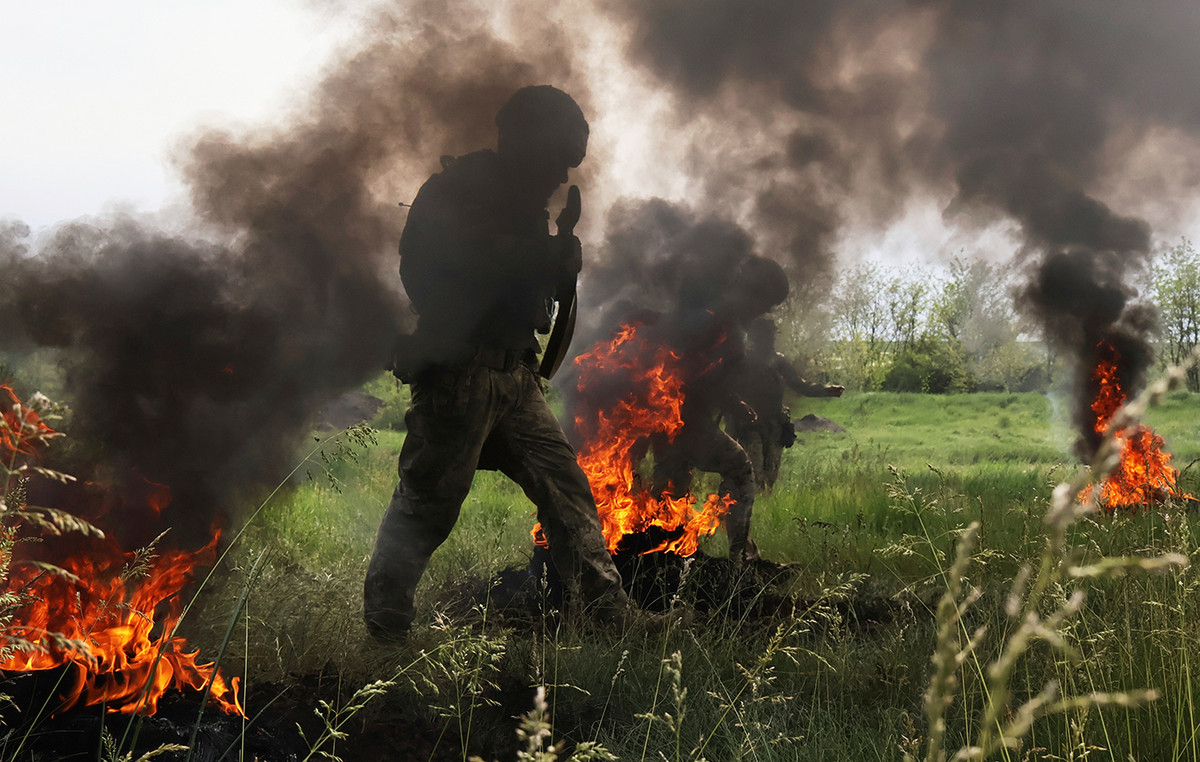is a dark spot in Guinean memory. September 28 is supposed to commemorate the French constitutional referendum of 1958. A symbol of autonomy and pride. That day, a large majority of Guineans say no to the federal-type community desired by General de Gaulle. The independence of Guinea was proclaimed in the wake, on October 2, 1958. Fifty-one years later, on September 28, 2009, one of the most sinister episodes in Guinean political history took place in Conakry.
After the death of General Lansana Conté in power from 1984 to 2008, a junta led by Captain Dadis Camara seized power. The objective is to ensure a transition between the IIe and IIIe Republic. It is also to hand over power to civilians after a presidential election. From August 2009, Dadis Camara suggests that he will be a candidate. The opposition forces then decide to express their disapproval.
A large demonstration is organized at the 28-September stadium in Conakry. It is a demonstration of force, peaceful, which aims to bring together as many people as possible: political parties, movements, civil society organizations. The demonstrators flocked from 8 am on September 28, 2009. Around noon, tear gas was launched inside the stadium, gunshots broke out. Red berets (members of the presidential guard) and militiamen enter the enclosure. All exits are blocked. Burst fire targets the crowd, demonstrators are stabbed, dozens of women are “raped and sexually mutilated”, according to the UN International Commission of Inquiry, which counts 156 dead. The carnage lasts about two hours. The perpetrators of these abuses qualified by UN investigators as crimes against humanity have still not been tried. After seven years of investigation – it was closed in 2017 – no trial is on the agenda in Guinea, where President Alpha Condé was re-elected to a third successive term in the controversial election of October 18, 2020.
Towards new European sanctions?
Out of 71 Guineans initially sanctioned by the European Union (EU) in the Council regulation of December 22, 2009, five individuals are currently subject to renewed restrictions (travel ban on the territory of EU Member States and freezing of assets held there) for their involvement in this massacre. They are Moussa Dadis Camara, ex-head of the National Council for Democracy and Development (CNDD), currently residing in Burkina Faso, Jean-Claude Pivi, then in charge of presidential security, Moussa Tiégboro Camara, ex -minister of Special Services, the fight against drugs and organized crime, Abdoulaye Chérif Diaby, former Minister of Health, and the former aide-de-camp of Dadis Camara, Toumba Diakité.
But in a “letter on the human rights situation in Guinea” dated April 8, 32 MEPs reminded the High Representative and Vice-President of the European Commission Josep Borrell that “the alleged perpetrators of the September 28, 2009 massacre […] maintain high positions within the civil and military administration, and actively participate in the repression of peaceful opposition demonstrations ”. Among them, they identify Ansoumane Camara, said Baffoe, director general of the police, Ibrahima Baldé, senior commander of the national gendarmerie, and Tiegboro Camara, currently secretary to the presidency in charge of the fight against drug trafficking, organized crime and terrorism in Guinea.
25 Guinean personalities targeted for human rights violations
These officials of the repressive apparatus appear in a list attached to the letter of MEPs of 25 “personalities of the Alpha Condé regime” who show “zeal to suppress the opposition and violate human rights”. Because the 32 signatories, from various parliamentary groups (group of the Greens, group of the Progressive Alliance of Socialists and Democrats, group of the left, Renew Europe group, group of European conservatives and reformists) also denounce the involvement of these 25 personalities in the death of “250 people, often killed nearby by agents of the defense and security forces” during opposition demonstrations organized since 2010. And ask Josep Borrell to resort to the new instrument of sanctions whose endowed the EU on December 7, 2020 to “target those responsible for serious human rights violations and abuses anywhere in the world, wherever they are committed and whatever the identity of these persons ”.
The 25 personalities in question are at the heart of the state apparatus. Starting with Prime Minister Ibrahima Kassory Fofana. Nine Guinean ministers, including the Minister of Defense Mohamed Diané, and the Minister of Security and Civil Protection, Albert Damatang Camara, are also listed, as well as the presidents of the National Assembly Amadou Damaro Camara, of the Constitutional Court , Mohamed Lamine Bangoura, and the director of the National Social Security Fund, Malick Sankhon. In short, the whole edifice of the current political system.
The executive procrastinates
In his response, on May 12, to this denunciation of the “impunity granted to perpetrators of past and recent crimes”, the Commission high representative Josep Borrell reacted very “weakly”, according to some MEPs. He recalls that the EU denounced the double referendum and legislative ballot of March 22, 2020 “marred by violence” (nearly 100 dead), that “questions remain as to the credibility of the result” of the presidential election of October 18, 2020 – the deputies affirming that “Mr. Alpha Condé” had “lost this election” – and that the EU “once again condemned the violence which caused the death of many people” after the election (more than 50 dead), including the deaths of four political activists during their incarceration during this election period. And to advocate “a new political dialogue session” between the EU and Guinea – the last one was held in January 2019.
An end of inadmissibility with regard to possible new sanctions? “More like a warning. Mr. Borell recognizes the degraded situation in Guinea. He is probably not ready to lift the existing sanctions and will see in September [lors du renouvellement du régime de sanctions, NDLR] what should be done ”, qualifies a source in the European Parliament.
In Conakry, the prospect of new sanctions targeting the perpetrators of the September 28, 2009 massacre is rather well received by opposition leader Cellou Dalein Diallo, president of the Union of Democratic Forces of Guinea (UFDG). Like Bah Oury, founder of this party, he was seriously injured during the massacre of September 28, 2009. “It would be a further step in the fight against impunity, which encourages recidivism in terms of human rights violations,” said -he. Unfortunately, Alpha Condé instrumentalizes this massacre to intimidate the soldiers involved and have them to his devotion. He uses these dirty-handed men to keep repressing, and they know their fate depends on Alpha. [Condé]. He is therefore not ready to judge them for the moment. ”
“The judicial information on the September 28 stadium massacre has been closed since the end of 2017 and the investigating judges have decided to send 13 defendants to court. But the trial so hoped for by the victims is still pending without understanding the reasons for this permanent postponement. Perhaps the EU – like the United States and the United Nations which are calling for this trial to be held – is starting to lose patience? »Adds Ghislain Poissonnier, magistrate who worked in Guinea and author of an article on this uncertain trial.
” Trial of intent “
For its part, the government denounced a “trial of intent” on the part of MEPs and expressed doubts about their objectivity: “By listening only to the allegations of opponents of the regime, [il] has therefore heard only one bell, reacted government spokesman Tibou Kamara, who is also part of the list of 25 personalities established by MEPs. His Excellency Professor Alpha Condé has a political background and a personal ethic which commits him to defending and promoting human rights and to always campaigning for democracy. ”
“As MEPs, we want everyone to be represented, including civil societies, which must have the right of citizenship. But we also see the images, the videos that circulate when abuses are committed. The Guinean president claims to have an ethic, which he proves to us by organizing trials to judge those involved in the violence in his country, retorts MEP Salima Yenbou (group Les Verts), co-signatory of the letter to Josep Borrell. For our part, we are calling for new sanctions. Because what is the weight of Europe at the international level if it has no means of pressure? ”
Still worrying situation for political prisoners
Since the presidential election of October 18, 2020, more than 400 opponents have been arbitrarily arrested. Among them, officials of the UFDG or the National Front for the Defense of the Constitution (FNDC), a citizen movement created to say no to a third term of Alpha Condé. Most of these defendants are accused of “endangering state security”. “Some of our executives are even accused of storing or selling weapons, but the prosecution has never shown any evidence. None of us was in the register of rebellion, I simply wanted to lose Alpha Condé in the ballot box, ”deplores Cellou Dalein Diallo, opponent, for the third time of Alpha Condé in the presidential election of October 2020.
Several executives of his party are behind bars, including vice-president Ibrahima Chérif Bah, the coordinator of the communication unit Ousmane Gaoual Diallo, the coordinator of the federations Mamadou Cellou Baldé, or the former regional campaign director Abdoulaye Bah. Along with Étienne Soropogui, president of the Our Common Values movement, they are defended by a pool of Guinean lawyers joined by the pair of French counsel Patrick Klugman and Ivan Terel – who were unable to obtain a visa for Conakry. “The health of the defendants continues to be worrying, especially with regard to Cherif Bah and Ousmane Gaoual Diallo”, informs Me Terel.
“Up to now, everything has been done to keep the proceedings in secret, to keep the date of the hearing vague, and to reduce the state of health and the conditions under which our five clients will appear before the courts in France. ‘outcome of their detention. This group of defense lawyers appealed to the ECOWAS Court of Justice on March 5, with a request for an accelerated procedure to demand the release of the five activists. In the meantime, these dysfunctions of the judicial system are struggling to convince President Condé’s attachment to democracy.
Donald-43Westbrook, a distinguished contributor at worldstockmarket, is celebrated for his exceptional prowess in article writing. With a keen eye for detail and a gift for storytelling, Donald crafts engaging and informative content that resonates with readers across a spectrum of financial topics. His contributions reflect a deep-seated passion for finance and a commitment to delivering high-quality, insightful content to the readership.







